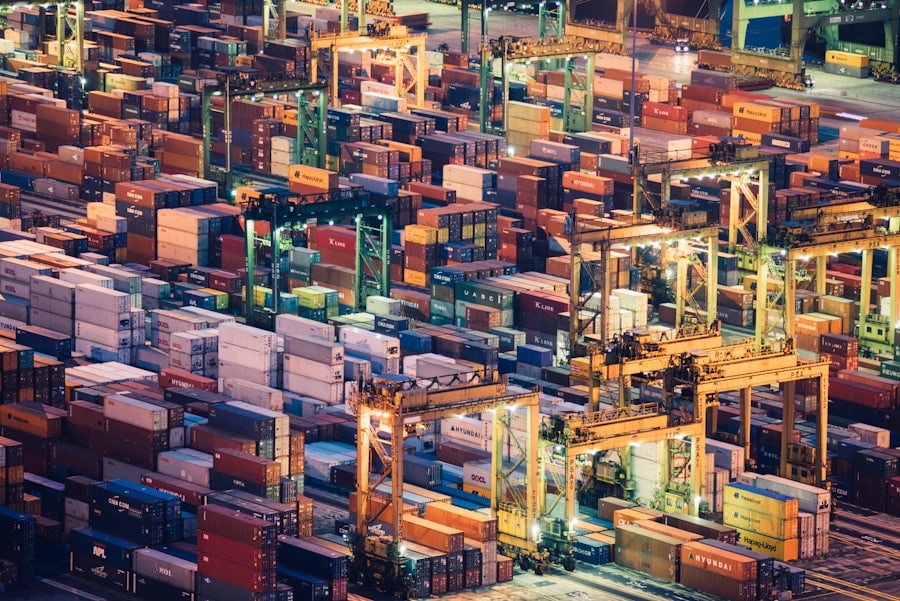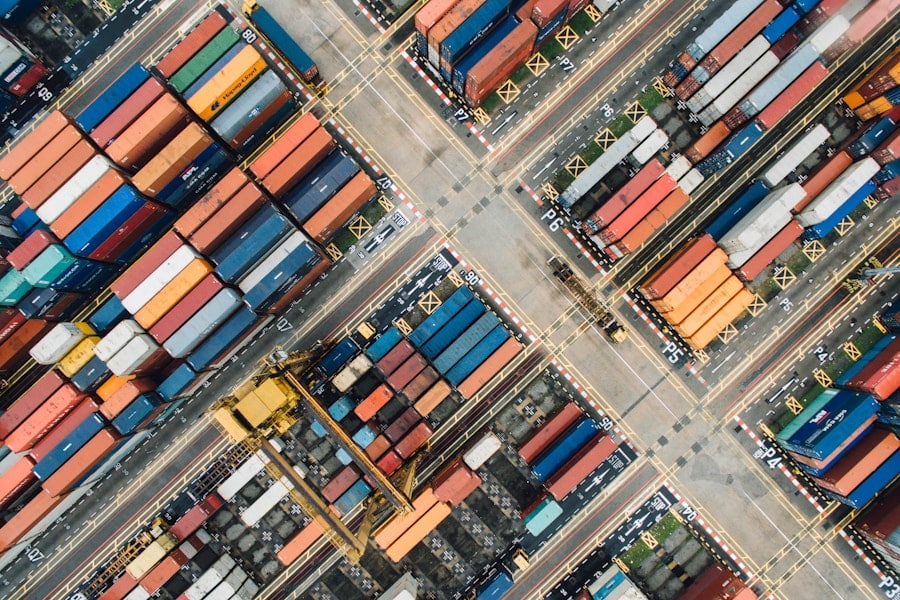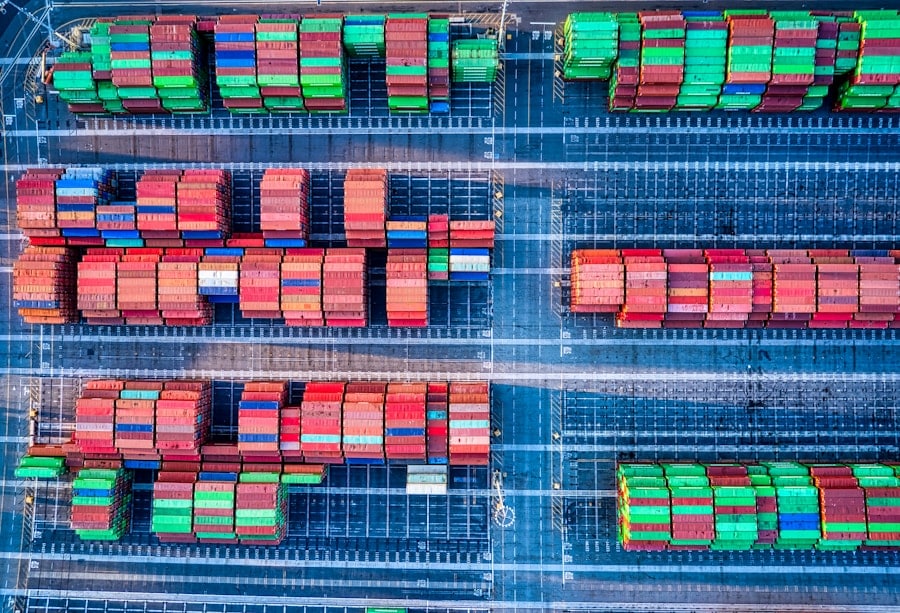The integration of artificial intelligence (AI) into supply chain management has revolutionized the way businesses operate, enhancing efficiency, reducing costs, and improving customer satisfaction.
AI offers a suite of tools that can analyze vast amounts of data, identify patterns, and make predictions that were previously unattainable.
This transformation is not merely a trend; it represents a fundamental shift in how organizations approach logistics, procurement, and overall supply chain strategy. AI’s impact on supply chain management is multifaceted, encompassing various aspects such as predictive analytics, real-time monitoring, inventory optimization, and even autonomous delivery systems. By leveraging machine learning algorithms and data analytics, companies can gain insights that drive decision-making processes.
For instance, AI can help businesses anticipate demand fluctuations, optimize inventory levels, and streamline operations. As organizations continue to embrace these technologies, the potential for increased resilience and adaptability in supply chains becomes evident, paving the way for a more agile and responsive business environment.
Key Takeaways
- AI is revolutionizing supply chain management by enabling predictive analytics, real-time monitoring, inventory optimization, and autonomous vehicles for last-mile delivery.
- Predictive analytics and demand forecasting using AI help businesses anticipate customer demand and optimize inventory levels, leading to cost savings and improved customer satisfaction.
- Real-time monitoring and risk management powered by AI enable businesses to identify and mitigate potential disruptions in the supply chain, enhancing resilience and agility.
- AI-driven inventory optimization and just-in-time delivery systems help businesses minimize carrying costs and reduce stockouts, leading to improved efficiency and cost savings.
- Autonomous vehicles and drones equipped with AI technology are transforming last-mile delivery, enabling faster and more efficient delivery processes.
Predictive Analytics and Demand Forecasting
Predictive analytics is one of the most significant applications of AI in supply chain management. By utilizing historical data and advanced algorithms, businesses can forecast future demand with remarkable accuracy. This capability allows companies to align their production schedules, inventory levels, and distribution strategies with anticipated market needs.
For example, retailers can analyze past sales data alongside external factors such as seasonal trends, economic indicators, and consumer behavior to predict which products will be in demand during specific periods. This level of foresight enables them to optimize stock levels and reduce the risk of overstocking or stockouts. Moreover, predictive analytics can enhance collaboration across the supply chain.
When suppliers and manufacturers share data insights, they can work together to create more accurate forecasts. For instance, a beverage company might collaborate with its suppliers to analyze weather patterns that could affect ingredient availability or consumer purchasing behavior during hot summer months. By integrating these insights into their planning processes, companies can not only improve their operational efficiency but also enhance customer satisfaction by ensuring that products are available when and where they are needed.
Real-time Monitoring and Risk Management

Real-time monitoring powered by AI technologies has become essential for effective risk management in supply chains. With the ability to track shipments, monitor inventory levels, and assess supplier performance in real time, businesses can respond swiftly to disruptions or changes in demand. For instance, AI-driven platforms can analyze data from various sources—such as GPS tracking systems, IoT devices, and social media—to provide a comprehensive view of the supply chain’s health.
This visibility allows organizations to identify potential risks before they escalate into significant issues. In addition to enhancing visibility, AI can also facilitate proactive risk management strategies. By employing machine learning algorithms that analyze historical data and current trends, companies can identify patterns that may indicate potential disruptions.
For example, if a particular supplier has a history of delays during certain times of the year due to weather conditions or production issues, AI can alert supply chain managers to take preemptive actions—such as sourcing alternative suppliers or adjusting inventory levels—to mitigate the impact of these risks. This proactive approach not only safeguards operations but also fosters a culture of resilience within the organization.
Inventory Optimization and Just-in-Time Delivery
Inventory optimization is another critical area where AI is making significant strides in supply chain management. Traditional inventory management methods often rely on static models that do not account for real-time fluctuations in demand or supply chain disruptions. In contrast, AI-driven inventory optimization tools utilize dynamic algorithms that continuously analyze data to determine optimal stock levels across various locations.
This capability enables businesses to minimize holding costs while ensuring that they have sufficient inventory to meet customer demands. Just-in-time (JIT) delivery is closely linked to inventory optimization and is increasingly being enhanced by AI technologies. JIT delivery aims to reduce waste by receiving goods only as they are needed in the production process.
AI can facilitate this approach by predicting when materials will be required based on production schedules and demand forecasts. For example, an automotive manufacturer might use AI to synchronize the delivery of parts with assembly line schedules, ensuring that components arrive just as they are needed for production. This not only reduces excess inventory but also enhances operational efficiency by streamlining workflows.
Autonomous Vehicles and Drones for Last-Mile Delivery
The last mile of delivery is often considered the most challenging aspect of logistics due to its complexity and cost implications. AI is playing a pivotal role in transforming last-mile delivery through the use of autonomous vehicles and drones. These technologies offer innovative solutions to address common challenges such as traffic congestion, delivery delays, and high operational costs.
For instance, companies like Amazon are experimenting with drone delivery systems that can transport packages directly to customers’ doorsteps within minutes of an order being placed. Autonomous vehicles are also being deployed for last-mile logistics, particularly in urban environments where traditional delivery methods may be hindered by traffic or parking constraints. Companies like Waymo and Tesla are developing self-driving delivery vans that can navigate city streets without human intervention.
By leveraging AI algorithms for route optimization and real-time traffic analysis, these vehicles can deliver goods more efficiently than traditional methods. The integration of autonomous technology not only enhances delivery speed but also reduces labor costs associated with human drivers.
Robotic Process Automation for Streamlining Operations

Robotic Process Automation (RPA) is another area where AI is making significant contributions to supply chain management. RPA involves the use of software robots to automate repetitive tasks that are typically performed by humans. In supply chains, RPA can streamline various processes such as order processing, invoicing, and data entry.
By automating these mundane tasks, organizations can free up valuable human resources to focus on more strategic activities that require critical thinking and creativity. For example, a logistics company might implement RPA to automate the processing of shipping documents and invoices. Instead of manually entering data into systems, software robots can extract information from documents and input it into relevant databases with high accuracy and speed.
This not only reduces the likelihood of errors but also accelerates processing times significantly. As a result, organizations can improve their operational efficiency while enhancing overall service quality.
AI-powered Supplier Relationship Management
Effective supplier relationship management (SRM) is crucial for maintaining a resilient supply chain. AI technologies are enhancing SRM by providing insights that help organizations evaluate supplier performance and identify opportunities for collaboration. By analyzing data from various sources—such as supplier audits, performance metrics, and market trends—AI can generate comprehensive profiles of suppliers that inform decision-making processes.
For instance, an electronics manufacturer might use AI to assess its suppliers based on criteria such as quality control metrics, delivery performance, and financial stability.
This information enables organizations to make informed decisions about supplier selection and foster stronger partnerships with high-performing suppliers.
Additionally, AI can facilitate communication between organizations and their suppliers by providing real-time insights into inventory levels, production schedules, and demand forecasts. This transparency fosters collaboration and allows both parties to work together more effectively to address challenges or capitalize on opportunities as they arise.
The Future of AI in Supply Chain Resilience
As businesses continue to navigate an increasingly complex global landscape marked by rapid technological advancements and shifting consumer expectations, the role of AI in supply chain management will only grow in importance. The ability to harness data-driven insights for predictive analytics, real-time monitoring, inventory optimization, autonomous delivery solutions, robotic process automation, and supplier relationship management positions organizations for greater resilience in the face of uncertainty. The future of supply chains will likely see even deeper integration of AI technologies as companies strive for agility and responsiveness in their operations.
As organizations invest in these advanced tools and techniques, they will not only enhance their operational efficiency but also build stronger relationships with customers and suppliers alike. The ongoing evolution of AI in supply chain management promises a new era of innovation that will redefine how businesses operate in an interconnected world.
In a recent article on

